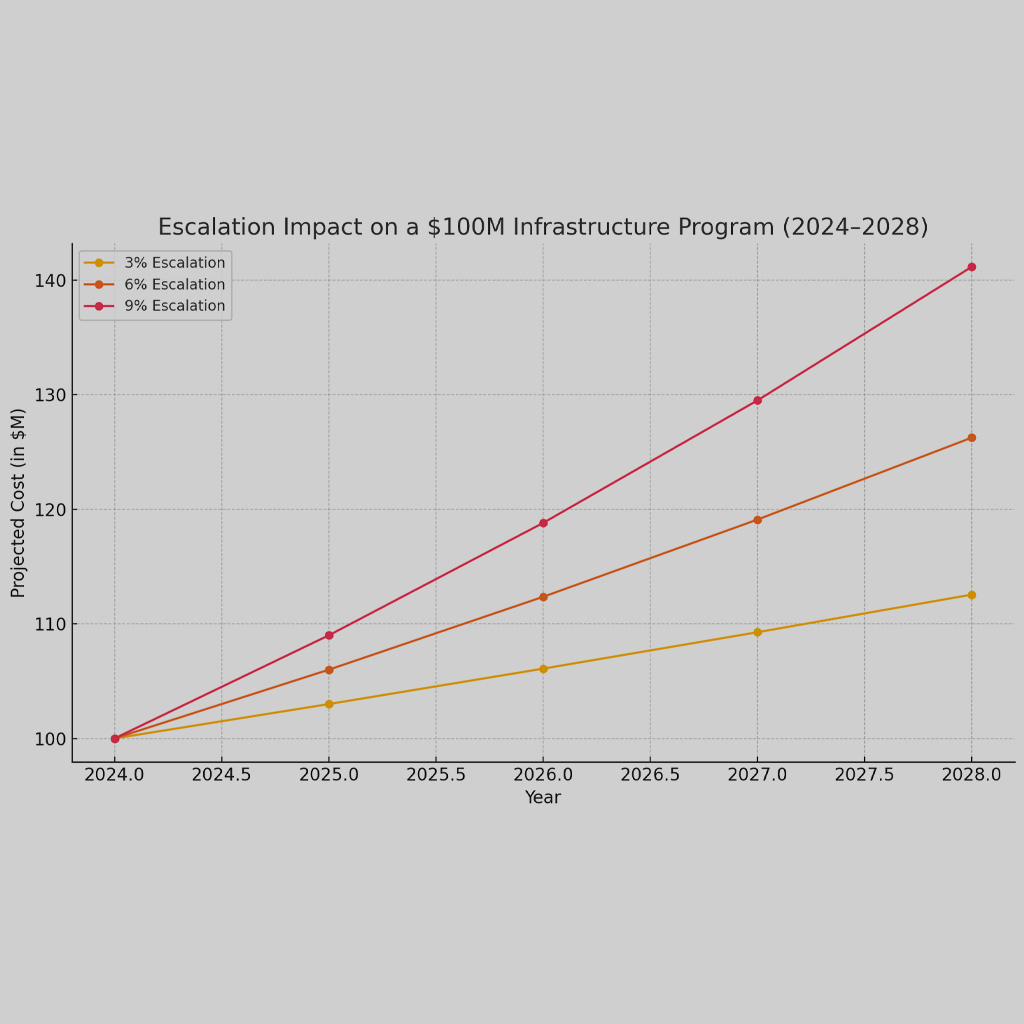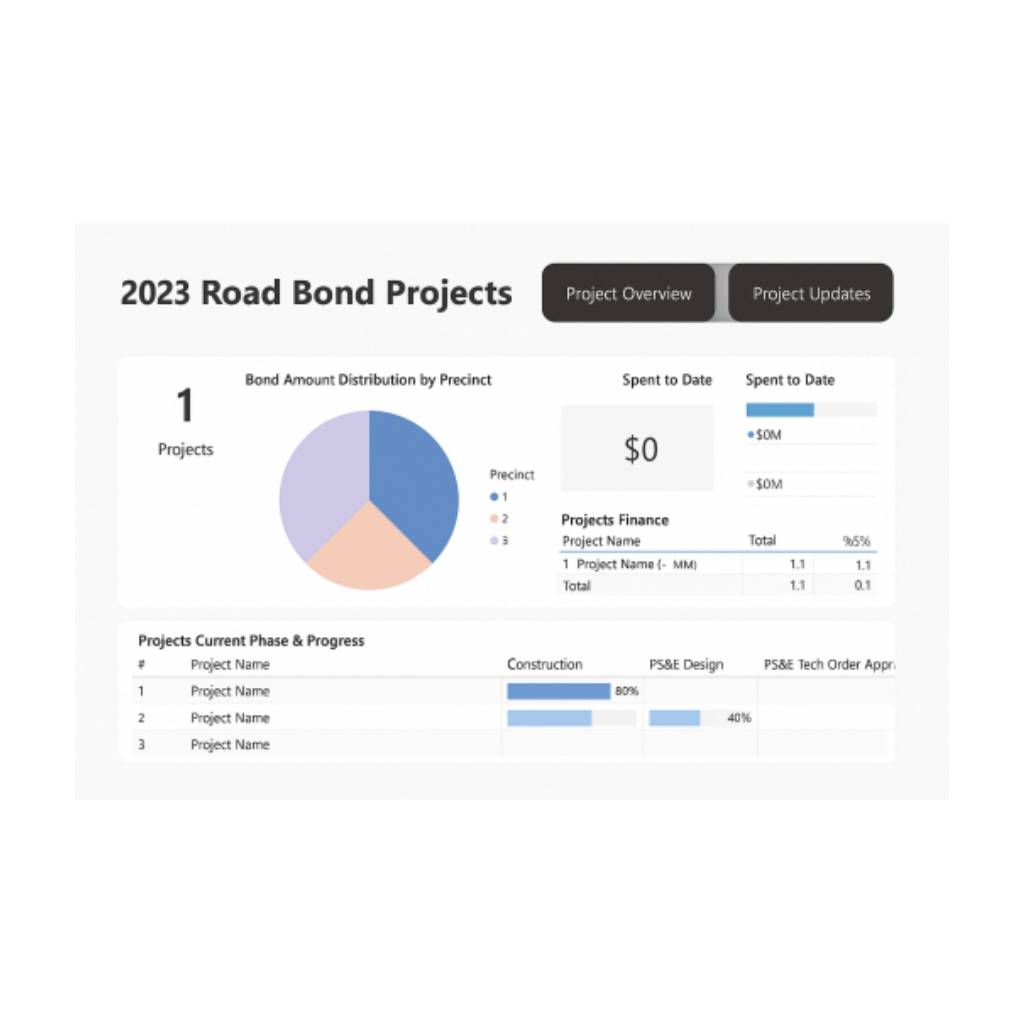“We shape our buildings; thereafter they shape us.” –Winston Churchill
Right of way (ROW) acquisitions and utility relocations have become increasingly significant components of the capital improvement project (CIP) cycle. These stages, crucial for the successful completion of infrastructure projects, have seen rising costs and extended durations, posing new challenges for project managers. This article examines the recent trends in land prices, the logistical difficulties of utility relocations, and the labor shortages in the utility relocation sector, highlighting how these factors have contributed to a disproportionate increase in processing times for these phases.
Rising Costs of Right of Way Acquisitions
One of the most pressing issues in the CIP cycle is the escalating cost of acquiring land for right of way. The surge in real estate prices has significantly impacted the budget and timeline of infrastructure projects. According to the Federal Highway Administration (FHWA), the cost of land acquisition has increased by over 20% in some urban areas in the past five years. This rise is driven by factors such as urbanization, population growth, and increased demand for commercial and residential properties.
In regions experiencing rapid economic growth, land prices have skyrocketed, making it more expensive for municipalities to secure the necessary ROW for infrastructure projects. This trend is not limited to major metropolitan areas; even smaller cities and rural areas have seen significant increases in land values, further straining project budgets.
Logistical Challenges of Utility Relocation
Utility relocation presents another critical challenge in the CIP cycle. This phase involves moving existing utility infrastructure, such as water, gas, electricity, and telecommunications lines, to make way for new construction. The complexity of this process has grown due to several factors:
- Aging Infrastructure: Many utilities are outdated and require significant upgrades or replacements during the relocation process, adding to the complexity and duration of projects.
- Coordination Issues: Relocating utilities often involves multiple stakeholders, including utility companies, government agencies, and private contractors. Coordinating these parties to ensure timely and efficient relocations can be challenging and time-consuming.
- Technological Advancements: Modern utilities often involve sophisticated technology that requires specialized knowledge and equipment for relocation. This adds to the logistical hurdles and increases the time required to complete the process.
Labor Shortages in Utility Relocation
The utility relocation sector is also facing a significant labor shortage, which has exacerbated the challenges of this phase. The demand for skilled workers in construction and utility relocation has outpaced supply, leading to delays and increased costs. The U.S. Bureau of Labor Statistics reports that the construction industry needs to hire 1.5 million more workers over the next decade to keep up with demand. This shortage is particularly acute in specialized fields such as utility relocation, where expertise and experience are critical.
Disproportionate Increase in Processing Times
Data confirms that the processing time for ROW acquisitions and utility relocations has disproportionately increased compared to other phases of capital improvement projects. According to a study by the National Cooperative Highway Research Program (NCHRP), the time required for ROW acquisitions and utility relocations has increased by approximately 30% over the past decade, while the overall project timeline has only increased by about 10%.
Several factors contribute to this disparity:
- Regulatory Hurdles: Increased regulations and environmental assessments have added layers of complexity to the ROW acquisition process, resulting in longer timelines.
- Community Opposition: Public opposition to land acquisition and utility relocation projects has become more pronounced, leading to delays in securing approvals and resolving disputes.
- Project Complexity: The growing complexity of modern infrastructure projects, which often involve multiple phases and interrelated components, has made it more challenging to complete ROW acquisitions and utility relocations within the expected timeframe.
Conclusion
Right of way acquisitions and utility relocations have become critical, yet increasingly challenging, aspects of the capital improvement project cycle. Rising land prices, logistical difficulties, and labor shortages have contributed to higher costs and extended durations for these phases. As a result, the processing times for ROW acquisitions and utility relocations have disproportionately increased compared to other project phases. Addressing these challenges requires a coordinated effort among stakeholders, investment in workforce development, and innovative solutions to streamline processes and mitigate delays.
At Front Line Advisory Group, we manage Capital Improvement programs to ensure they are completed on time and within budget. We make sure every dollar is used wisely to improve our community. For more information or to start your project, contact us at info@frontlineadvisorygroup.com.
References
- Federal Highway Administration. (2022). Trends in Real Estate Prices. Retrieved from https://www.fhwa.dot.gov.
- American Society of Civil Engineers. (2021). Report Card for America’s Infrastructure. Retrieved from https://www.infrastructurereportcard.org.
- National Association of Utility Contractors. (2023). Challenges in Modern Utility Relocation. Retrieved from https://www.nauc.org.
- U.S. Bureau of Labor Statistics. (2023). Employment Projections. Retrieved from https://www.bls.gov.
- National Cooperative Highway Research Program. (2023). Study on Right of Way Acquisition and Utility Relocation. Retrieved from https://www.nchrp.org.













